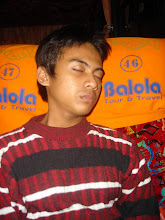David Ausubel is unusual among educational theorists. First of all, he address himself to the goal of learning subject matter. Second, he advocates the improvement of presentational methods of teaching (lectures and reading) at a time when other educational theorists and social critics are challenging the validity of these methods and stressing the passiveness of expository learning. Ausubel stands in contrast with those who advocate discovery methods of teaching, open education, and experience-based learning. He stands unabashedly for the mastery of academic material.
Ausubel is also unusual because he is one of the few educational psychologists to address themselves simultaneously to learning, teaching, and curriculum. His theory of Meaningful Verbal Learning deals with three concerns:
1. how knowledge (curriculum content) is organized
2. how the mind works to process new information (learning)
3. how these ideas about curriculum and learning can be applied by teachers when they present new material to students (instruction)
many of us have been frustrated by theorists who can explain how learning occurs but do not help us teach and organize a curriculum. The Theory of Meaningful Verbal Learning and its derivative, the Advance Organizer Model of teaching, provide recommendations to teachers for selecting, ordering, and presenting new information.
Goals and Assumptions
Ausubel’s primary concern is to help teachers convey large amounts of information as meaningfully and efficiently as possible. He believes that the acquisition of information is a valid, indeed and essential goal of schooling, and that there are theories that can guide teachers in their job of transmitting bodies of knowledge to their students. His own ideas of how this learning takes place is embodied is his Theory of Meaningful Verbal Learning.
This theory applies to situations where the teacher plays the role of lecturer or explainer. The major purpose is to help students acquire subject matter. Characteristically, the teacher presents the entire content of what is to be learned directly to the learner. The learner’s primary role is that of recipient of ideas and information. Unlike other types of learning, such as problem solving, the Advance Organizer does not expect the learner to have to “do anything with” the material expect to internalize it.
The Advance Organizer Model is designed to strengthen students’ cognitive structures. By cognitive structure, Ausubel means a person’s knowledge of a particular subject matter at any given time and how well organized, clear, and stable it is. In other words, cognitive structure has to do with what kind of prior knowledge of a field is in our minds, how much of it there is, and how well organized it is.
Ausubel maintains that a person’s existing cognitive structure is the foremost factor governing whether new material is potentially meaningful and how well it can be acquired and retained. Before we can present new material effectively, we must increase the stability and clarity of our students’ prior knowledge. Strengthening students’ cognitive structure in this way facilitates their acquisition and retention of new information and is one of the model’s primary goals.
Is Expository Learning Rote Learning?
Meaningful learning is not an easy task, either for the student, who must internalize the new material, or the teacher, who must select, arrange, and present the content. In recent years there has been much criticism (wrongly, in Ausubel’s view) of this type of learning. Reception (or expository) learning has been accused of leading to rote memorization, fostering intellectual passivity rather than curiosity, and inherently lacking meaning for the student. Ausubel rejects the notion that expository teaching (or learning) is necessarily rote, passive, or non meaningful. He maintains that problem-solving approaches to instruction can lead to rote learning as well as expository instruction, as is the case where students memorize the steps of mathematics or physics problems and apply them mechanically to similar problems without understanding why they are performing the operations. Expository or reception teaching does not inherently lead to rote learning; this is a function of how it is conducted. Unfortunately, reception teaching is often conducted in a preponderantly rote fashion.
Meaningful learning implies that what we have learned is intellectually linked and understood in the context of what we previously knew. It also implies that we can transform this knowledge and apply it creatively in new and rathernovel situations. Rote learning,in contrast, typically lacks conceptual and critical approaches to the information we acquire. It usually does not prepare us to transform this knowledge or apply it in new contexts. Furthermore, rotely learned material is highly subject to forgetting.
Researchers and practitioners often fail to distinguish among various types of learning. Yhere is need for many types of learning processes, since they promote different educational objectives.
Read full post >>


